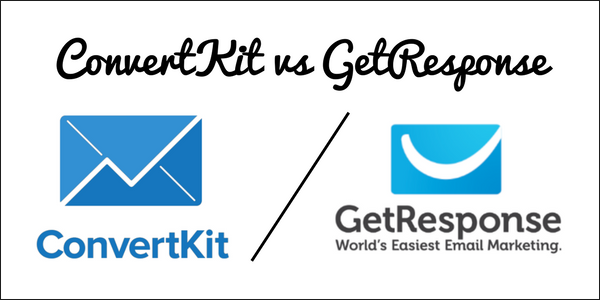Do You Need a Business License for Affiliate Marketing?
Do you need a business license for affiliate marketing?
This is the burning question on many aspiring marketers’ minds.
The world of affiliate marketing can be a labyrinth with its own rules and regulations. It’s not just about finding products to promote or mastering SEO strategies; there are legalities to consider too.
No, you do not need a business license to do affiliate marketing. As an affiliate marketer, you sell other people’s products through a link on your website that redirects to a vendor’s site. The sale occurs on the vendor’s site, and you are paid a commission for referring them.
Let’s face it – understanding whether you need a business license for affiliate marketing isn’t straightforward. But don’t worry. We’re here to help navigate this tricky terrain.
Exploring the Concept of Affiliate Marketing
Affiliate marketing is a flourishing online business model that provides an enticing opportunity for individuals seeking to supplement their income or even replace their full-time jobs.
This form of digital marketing involves promoting products from diverse companies and earning commissions when customers purchase through your unique affiliate links.
The allure of affiliate marketing lies in its simplicity and potential profitability.
As an affiliate marketer, you’re not required to create your product or address customer service issues; taking advantage of existing successful products is the key.
You can choose from numerous companies offering affiliate programs, allowing flexibility to align with your interests and skills.
Despite the flexibility of affiliate marketing, it requires careful planning and consistent execution to achieve success.
Effective promotion demands strategic planning coupled with consistent execution of high-quality content creation alongside effective SEO strategies.
Potential Earnings as an Affiliate Marketer
Regarding earnings potential, there are no fixed limits in affiliate marketing – some marketers make hundreds per month while others rake in thousands or more.
The amount one can earn largely depends on factors such as chosen niche, audience size, conversion rates, and commission structure offered by various businesses running these programs.
Bear in mind that achieving substantial earnings typically doesn’t happen overnight but builds up over time as traffic grows and trust is established within the readership base.
Finding Success Through Quality Content Creation
The cornerstone of any successful venture into this world of affiliate marketing rests upon quality content creation – be it blog posts reviewing products or informative articles addressing common questions within selected niche area(s).
Your primary goal should always center around providing valuable information that helps solve problems readers face while subtly integrating relevant product recommendations where appropriate.
This approach fosters trust between the promoter (you) and consumer (them), making them more likely to click the referral link once they decide to buy the promoted item via the respective platforms involved herein, thus leading towards the desired result: earning those much sought-after commissions.
Key Takeaway: While affiliate marketing offers a potentially profitable avenue without the need to create your product, it’s not an effortless endeavor. Success requires strategic planning, quality content creation, and effective SEO strategies. Earnings can vary significantly based on factors like niche selection and audience size but remember. Substantial earnings typically build over time.
The Basics of Starting an Affiliate Marketing Business
Stepping into the realm of affiliate marketing involves a series of fundamental steps.
The initial move is to become part of a trustworthy affiliate network. These platforms serve as bridges between affiliates and businesses that offer affiliate programs, granting you access to countless products and services for promotion.
After joining such a network, it’s time to cherry-pick those offerings that align with your interests and target audience.
This ensures authenticity in your promotional efforts leading to higher conversion rates.
Choosing the Right Affiliate Programs
Selecting suitable affiliate programs calls for thorough research coupled with careful deliberation. It’s crucial to pick items or services that resonate personally and appeal substantially to your potential customers.
Here are a few affiliate programs that are great for beginners.
Amazon Associates offers myriad product categories allowing affiliates flexibility while choosing what they want to promote on their platform – making it easier than ever. Commissions pay between 1% and 20% with a 1-day cookie.
Similarly, if creativity defines both you & your audience, then look no further than Etsy Affiliate Program. Commission payout is 2% to 4% with a 30-day cookie.
Creating Engaging Marketing Materials
Promoting selected products or services effectively requires engaging content beyond mere promotion – building trust within the target market becomes essential here.
When we talk about formalizing this venture beyond just signing up online, registering officially depends mainly upon local regulations.
If required by law where one resides (or plans to operate), information regarding how to do so can be found easily through various resources available over the internet.
However, remember not to get too overwhelmed by details initially.
Instead, focus on producing quality content, driving traffic, generating sales, and considering other aspects like obtaining licenses when they become relevant.
Understanding Legal Obligations in Affiliate Marketing
Navigating the legal landscape of affiliate marketing is vital to your journey as an affiliate marketer. Determining if you need a business license depends on location and the type of business conducted.
But that’s not all. There are other essential obligations to consider, like tax responsibilities and disclaimers, when promoting products through affiliate programs.
Tax Responsibilities as an Affiliate Marketer
Earning income from affiliate commissions means stepping into the shoes of independent contractors for tax purposes.
This implies keeping track of every penny earned from companies offering these programs and any expenses related to your digital marketing efforts.
This could be anything – costs incurred while advertising their offerings or even buying products wholesale for reviewing them on your blog or website.
Fear not. There’s no shortage of online tools designed specifically to help manage finances effectively if this sounds overwhelming.
A word to the wise though: Always consult with a certified public accountant (CPA) who understands self-employed taxes before filing yours.
The Importance Of Disclaimers In Affiliate Marketing
Beyond taxation lies another crucial obligation – using disclaimers appropriately whenever affiliated links are used in promotions.
The Federal Trade Commission (FTC) mandates marketers disclose their relationship with sellers under such circumstances – enter disclaimers.
Your disclaimer should inform readers how purchasing via one of your links might benefit you financially. Transparency isn’t just compliant and fosters trust between both parties involved, which may eventually boost conversions.
You’ll find more information about crafting adequate disclosures at resources like FTC’s Guide on Native Advertising.
Rome wasn’t built overnight, nor will success come instantly, but compliance protects everyone involved while nurturing transparency within our virtual ecosystem.
Key Takeaway: Understanding your legal obligations as an affiliate marketer, including whether you need a business license, is crucial. Keep track of all income and expenses for tax purposes, and always consult with a CPA before filing taxes. Remember to use disclaimers when promoting products through affiliated links – transparency isn’t just compliant; it’s also good for building trust.
Evaluating Business Structures for Your Affiliate Marketing Venture
When launching an affiliate marketing business, the choice of your business structure can significantly impact how you operate and grow.
Two prevalent structures that most marketers consider are a sole proprietorship or limited liability company (LLC).
Starting As A Sole Proprietor
The simplicity of setting up as a sole proprietor is attractive to many new affiliates. This model allows complete control over operations while enabling them to retain all profits after taxes.
A potential downside lies in personal responsibility toward any debts or liabilities incurred by your affiliate marketing venture.
In other words, creditors could target personal assets like homes or cars if your operation goes south financially.
To mitigate this risk, meticulous record-keeping becomes paramount – especially when tracking income from affiliate commissions and related expenses.
Side Note: One of my favorite accounting software is Quickbooks. Most accountants use it, and you can connect all of your accounts to it to make tracking your finance to all simplier.
Utilizing digital tools can help streamline this process, ensuring accuracy in financial management.
Considering Limited Liability Company (LLC)
An alternative option worth considering is forming an LLC, which offers more protection against personal liability because it separates individual assets from those of the enterprise – meaning only what is invested into the company would be at risk should financial issues arise.
This added layer makes LLCs appealing, particularly when contemplating growth plans within specific niche markets where potential lawsuits may pose risks due to high-value products being promoted through their platforms.
Side Note: Zen Business is the simplest way to set up your LLC, file articles of organization, create your operating agreement, and get your EIN.
However, transitioning from being a sole proprietor to establishing an LLC involves additional costs, such as filing fees & ongoing state requirements varying based on location. However, leveraging resources online provides specific information relevant to each situation.
Remember: regardless of whether you are choosing between becoming a sole proprietor vs forming an LLC, understanding these models will enable better decision-making about which fits best both current circumstances & future aspirations of running successful businesses earning money.
Key Takeaway: Choosing the proper business structure is crucial for your affiliate marketing venture. A sole proprietorship offers complete control and profit retention but carries personal liability risks. An LLC provides more protection against these risks but involves additional costs and state requirements. Understanding both models helps in making an informed decision.
Managing Finances in Your Affiliate Marketing Business

To be a successful affiliate marketer, it is essential to understand the nuances of setting up a separate business bank account and buying products wholesale.
From setting up a separate business bank account for tracking income and expenses effectively to knowing the ins and outs when buying products wholesale – it’s all part of being an effective affiliate marketer.
Setting Up A Separate Business Bank Account
The first step towards efficient financial management in your new venture involves creating a dedicated business bank account.
This clarifies personal funds and those linked with your online enterprise and simplifies tax preparation by providing clear documentation associated with business transactions.
Efficacious Management Of Business Expenses
Beyond just keeping track of incoming revenue from commissions earned through promoting products on behalf of companies offering affiliate programs, other costs are also involved.
These can include web hosting fees or advertising expenditures, which need careful monitoring.
Consider using budgeting tools for small businesses like Quickbooks.
Navigating Wholesale Purchases And Payments From Affiliate Programs
If partaking in product reviews forms part of your strategy, then purchasing items wholesale may sometimes be necessary.
Keep up-to-date about how payments work within different organizations running these programs; some might pay out monthly, while others prefer quarterly disbursements via direct deposit or check.
Remember: Aspiring marketers shouldn’t get overwhelmed by details initially but instead focus on producing quality content that drives traffic leading to sales conversions, before worrying about additional requirements like obtaining licenses.
Successful navigation around these aspects ensures compliance and contributes towards profitability, ensuring every dollar spent aids growth rather than hindering progress.
Key Takeaway: Efficient financial management is crucial in affiliate marketing, from setting up a separate business bank account to monitoring expenses and understanding wholesale purchases. Don’t sweat the small stuff initially; focus on quality content that drives sales before diving into finer details like licenses.
Growing Your Affiliate Marketing Business
Scaling up your affiliate marketing efforts might appear intimidating at first glance.
However, you can successfully grow your business with the right approach and a focus on critical areas such as quality content creation, traffic generation, and consistent sales efforts.
Focusing on Quality Content Creation
The journey to growing an affiliate marketing business starts with creating high-quality content.
This involves crafting engaging articles or blog posts about the products from companies that offer affiliate programs.
Your primary aim should be delivering value to your readers while subtly promoting the product or service.
Trust is crucial here; readers are likelier to click through and make purchases if they find your reviews honest and helpful.
Prioritizing Traffic Generation Strategies
Achieving steady growth for any online venture requires constant web traffic. Generating traffic requires SEO, social media promotion, and email newsletters.
- Understanding SEO principles will help improve visibility on search engines like Google, which means more potential customers find their way onto your site.
- Social media platforms serve as powerful tools for reaching wider audiences quickly.
- Email newsletters keep subscribers engaged with regular updates about new content or promotions.
Maintaining Consistent Sales Efforts
For any online business to thrive, long-term consistent sales must be maintained over time.
This often entails regularly updating promotional materials based on customer feedback, trends, market changes, etc.
It’s equally vital to continually analyze performance data to identify what works best and refine it accordingly. This could mean tweaking headlines adjusting call-to-action phrases experimenting with different types of imagery.
You may also consider diversifying the range of products promoted, potentially increasing earnings without necessarily increasing workload.
With careful planning and diligent execution, these steps significantly boost the success rate of growing a robust, profitable AFFILIATE MARKETING BUSINESS.
Key Takeaway: Scaling your affiliate marketing business hinges on crafting quality content, driving consistent web traffic, and maintaining steady sales efforts. Trust-building reviews, SEO savvy, social media leverage, email engagement, and data-driven adjustments can all fuel your venture’s growth.
FAQs to Do You Need a Business License for Affiliate Marketing
Do you need a business license for an Amazon affiliate?
No, Amazon does not require affiliates to have a business license. However, it’s wise to understand your local laws and tax obligations related to online income.
What are the legal requirements for affiliate marketing?
Affiliate marketers must adhere to FTC guidelines by disclosing their affiliations. They also need to manage tax responsibilities as independent contractors.
Does affiliate marketing count as a business?
If you’re earning income from affiliate marketing regularly, it can be considered a small business. This may affect your taxes and potential liability protection needs.
Do I need a sole proprietorship for affiliate marketing?
You don’t necessarily need one, but starting as a sole proprietor is often the most straightforward option for new affiliates with fewer complexities in terms of paperwork and taxation.
Conclusion
Embarking on the journey of affiliate marketing can be both exciting and challenging.
You’ve discovered how to start, from choosing suitable affiliate programs to creating engaging content that resonates with your audience.
We’ve delved into legal obligations, emphasizing the importance of disclaimers and understanding tax responsibilities.
A key takeaway is that you typically don’t need a business license for affiliate marketing unless required by local laws or if you choose to register as an LLC or other formal business structure.
Managing finances effectively forms another crucial aspect, along with strategies for scaling up over time.











![ConvertKit Review – A Complete In-Depth Video Review [2018]](https://sidehustleacademy.com/wp-content/uploads/2018/03/ConvertKit-Review.png)
